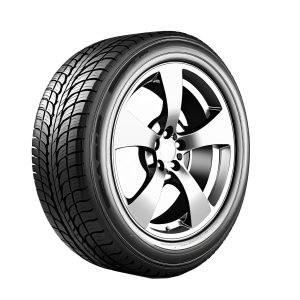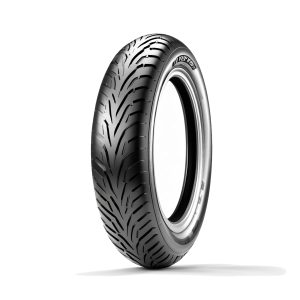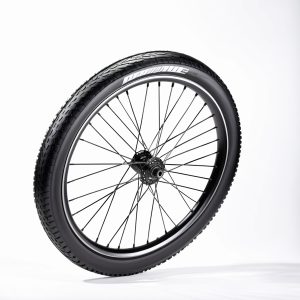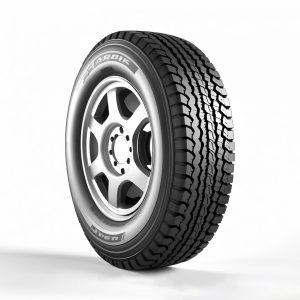 Car tyres
Car tyres Rims
Rims Commercial Tyres
Commercial Tyres Motorcycle tyres
Motorcycle tyresIntroduction to Types of Tyres
 Tyres are one of the most critical components of any vehicle, playing a decisive role in performance, safety, and efficiency. They are the only element that forms a direct connection between the vehicle and the road. Therefore, choosing the right type of tyre for your needs is essential.
Tyres are one of the most critical components of any vehicle, playing a decisive role in performance, safety, and efficiency. They are the only element that forms a direct connection between the vehicle and the road. Therefore, choosing the right type of tyre for your needs is essential.
The Importance of Tyre Selection
Choosing the right tyre can make a world of difference when it comes to your vehicle’s handling, fuel consumption, and even overall safety. There is a multitude of tyre types, each developed for specific conditions and use-cases.
Types of Tyres and Their Differences
- Passenger Car Tyres: These are designed for general use in passenger cars.
- Summer Tyres: Optimal for warm conditions.
- Winter Tyres: Provide maximum grip in cold temperatures and on snowy surfaces.
- All-Season Tyres: A good all-around option for various weather conditions.
- Run-Flat Tyres: Allow you to keep driving even after a tyre puncture.
- Off-Road Tyres: Ideal for driving off the beaten path.
Selecting Tyres Based on Needs
Depending on your individual needs, there are tyres for almost every type of vehicle and any kind of road or weather condition. From everyday vehicles to commercial vehicles and even specialized vehicles like motorcycles, off-road vehicles, and construction machinery.
In the following sections of this page, we will delve into the various types of tyres in detail to assist you in selecting the best tyre for you.
Passenger Car Tyres
 A Versatile Choice for Everyday Use
A Versatile Choice for Everyday Use
When it comes to Passenger Car Tyres, you’re looking at the most common type of tyre on the market. These tyres are engineered to offer a balanced mix of comfort, durability, and performance. They are suitable for everyday city driving as well as longer highway journeys, making them a versatile option for most drivers.
Different Types Within the Category
- Summer Tyres: These are designed for optimal performance in warm weather. They offer excellent grip on both dry and wet roads and are generally not suitable for winter conditions.
- Winter Tyres: Engineered to perform at their best in cold conditions. The tread pattern is designed to provide better grip on snow and ice.
- All-Season Tyres: These tyres are a compromise between summer and winter tyres, offering reasonable performance year-round.
- Run-Flat Tyres: These allow for limited mobility even after a puncture, giving you enough time to reach a service station.
Factors to Consider When Choosing
Selecting the right Passenger Car Tyre involves considering several factors such as the type of car you have, the conditions you’ll be driving in, and your performance requirements. Understanding these factors can help you make an informed decision that enhances your driving experience.
The Impact of Wrong Choices
Selecting the wrong type of tyre can lead to reduced performance, lower fuel efficiency, and even safety risks. Therefore, it’s crucial to consider your needs carefully and consult experts if necessary.
Motorcycle Tyres
 Designed for Performance and Safety
Designed for Performance and Safety
Motorcycle tyres are a critical component for both performance and safety. Unlike car tyres, both front and rear motorcycle tyres are subjected to different kinds of stresses and requirements. The right tyre can drastically improve your bike’s performance and give you a more comfortable ride.
Specialized Types to Suit Different Riding Styles
- Dual-Sport Tyres: These are versatile tyres designed for both on-road and off-road use.
- Sport Tyres: Developed for high-performance riding, these tyres offer exceptional grip but may wear out quicker.
- Touring Tyres: These are designed for long-distance riding and offer excellent durability and comfort.
- Off-Road Tyres: Specifically designed for off-road conditions, they offer better grip on unpaved surfaces.
- Road Tyres: Ideal for city and highway riding, these tyres offer a balanced mix of longevity and performance.
- Racing Tyres: Made for the track, these tyres offer the highest levels of grip and performance but are not suitable for regular use.
- Radial Tyres: These offer a softer ride and better heat dispersion, making them suitable for high-speed riding.
Key Features to Look For
When choosing a motorcycle tyre, consider the type of riding you’ll be doing, your bike’s specifications, and the weather conditions. Look for features such as tread pattern, rubber compound, and speed ratings to match your specific needs.
The Dangers of Incorrect Tyre Choices
Selecting unsuitable tyres for your motorcycle can result in decreased performance, handling issues, and potentially serious safety hazards. Always choose tyres that fit your bike’s requirements and your riding style.
Bicycle Tyres
 More Than Just a Ride
More Than Just a Ride
Bicycle tyres serve as the connection between the cyclist and the road or trail. They can significantly influence your riding experience by affecting grip, speed, and comfort.
Types of Bicycle Tyres
- Road Bike Tyres: Designed for speed and minimal resistance.
- Mountain Bike Tyres: Built for grip and durability on rough trails.
- BMX Tyres: Made for agility and performance in BMX parks.
- City/Cross Tyres: Versatile tyres that offer a balance between speed and comfort for urban environments.
The Importance of Tyre Pressure
Maintaining the correct tyre pressure is crucial for optimal cycling performance. Too low of a pressure can result in poor handling and increased rolling resistance, while too high can compromise grip and comfort.
Tread Pattern
The tread pattern of a bicycle tyre affects its performance characteristics. Road bike tyres often have a smooth tread for speed, while mountain bike tyres have deep lugs for off-road grip.
Tubeless vs Tubed
Modern bicycle tyres often come in two types: tubeless and tubed. Tubeless tyres can offer lower rolling resistance and are less prone to flats, but they require a compatible rim and can be harder to fit.
Seasonal Variations
Just like with vehicle tyres, certain bicycle tyres are better suited for different seasons. Winter-specific tyres offer better grip in snowy or icy conditions, while summer tyres provide excellent performance on hot, dry roads.
Specialized Tyres
 For the Unconventional Roads
For the Unconventional Roads
Not all journeys take place on roads or well-trodden paths. Specialized tyres are engineered for those unique environments and tasks that go beyond the everyday. These tyres are customized to excel in specific conditions, providing safety, durability, and performance where standard tyres might fail.
Types of Specialized Tyres
- ATV Tyres: Built for All-Terrain Vehicles, these tyres can handle a wide range of conditions, from sand dunes to muddy trails.
- Excavator Tyres: Designed for heavy-duty excavation work, they provide stability and durability.
- Construction Equipment Tyres: These are made to withstand the harsh environments of construction sites.
- Golf Cart Tyres: Engineered for smooth rides over golf courses, they offer low ground pressure to protect delicate terrains.
- Industrial Tyres: Used in warehouses and factories, these tyres are designed for longevity and can support heavy loads.
- Lawn Mower Tyres: These tyres are optimized for grip on grass and maneuverability around obstacles.
- Tractor Tyres: Made for agricultural use, they offer high traction and durability in various field conditions.
Versatility and Durability
Specialized tyres often come with features like reinforced sidewalls, specialized tread patterns, and materials that can withstand extreme conditions. This makes them versatile and durable, capable of enduring the challenges specific to their designed usage.
Safety and Efficiency
Using the right specialized tyre for the right job is crucial for safety and efficiency. A mismatch can result in decreased performance and increased risk. Therefore, always consult the manufacturer’s specifications when choosing a specialized tyre.
Sustainability Concerns
As technology advances, the focus is also shifting towards making these specialized tyres more eco-friendly. Manufacturers are investing in research to create tyres from sustainable materials that offer the same, if not better, performance and longevity.
ATV Tyres
Beyond the Pavement
All-terrain vehicle (ATV) tyres are designed to handle a variety of terrains, from muddy trails to rocky paths. Their rugged construction ensures durability and optimum performance in challenging environments.
Types of ATV Tyres
- Mud Tyres: Specifically designed to offer the best traction in muddy conditions.
- Sand Tyres: Made with large gaps and paddle-like extensions for optimal performance in sandy terrains.
- All-Terrain Tyres: Suitable for a variety of surfaces, these tyres offer a balanced performance.
Ply Rating
The ply rating of an ATV tyre indicates its strength and durability. Higher ply ratings often mean that the tyre can withstand more weight and higher speeds, but they can also result in a stiffer ride.
Wheel Size
The size of your ATV wheels plays a crucial role in determining which tyres are suitable for your vehicle. Always consult the manufacturer’s recommendations when selecting new tyres.
Maintenance Tips
Regular maintenance can prolong the life of your ATV tyres. This includes checking the tyre pressure regularly and inspecting for any signs of wear or damage.
Seasonal Considerations
Like most other types of tyres, ATV tyres come in variants suited for different weather conditions. Some are designed to perform better in wet or snowy conditions, while others are optimized for hot, dry climates.
Lawn Mower Tyres
The Unsung Heroes of a Perfect Lawn
Lawn mower tyres may not be the first thing you think about when envisioning a well-manicured garden, but they play a crucial role in achieving that lush, even cut. Whether you own a riding mower or a push mower, the right tyres can make a world of difference.
Types of Lawn Mower Tyres
- Smooth Tyres: Designed for minimal traction, these are ideal for flat and even terrains.
- Turf Tyres: These provide more grip than smooth tyres but are still gentle on grass.
- All-Terrain Tyres: Suitable for hilly and uneven landscapes, these tyres offer superior traction.
Considerations for Tyre Size
Size matters when it comes to lawn mower tyres. The wrong size can lead to inefficient mowing and may even damage your lawn. Always consult your mower’s manual for size recommendations.
Durability and Material
Lawn mower tyres are generally made from either pneumatic rubber or solid foam. While pneumatic tyres offer a softer ride, foam tyres are more durable and puncture-resistant.
Maintenance Tips
Similar to other types of tyres, regular maintenance is essential for lawn mower tyres. Check for proper inflation and inspect for signs of wear or damage before each mowing session to ensure optimal performance.
Construction Equipment Tyres
The Backbone of the Construction Industry
Construction equipment tyres are specifically designed to withstand heavy loads and rough conditions found at construction sites. The right set of tyres can enhance the efficiency and safety of your construction machinery.
Types of Construction Equipment Tyres
- Pneumatic Tyres: Air-filled tyres that offer a smooth ride but are susceptible to punctures.
- Solid Rubber Tyres: These are puncture-proof but provide a rougher ride.
- Foam-Filled Tyres: These offer the best of both worlds, providing puncture resistance while maintaining a smoother ride.
Tread Patterns
Construction equipment tyres come in various tread patterns, each designed to optimize performance under specific conditions. From mud to rocky terrains, selecting the right tread can make a significant difference in your machine’s efficiency.
Load Carrying Capacity
The load-carrying capacity is an essential factor to consider when choosing construction equipment tyres. Always adhere to the manufacturer’s guidelines to avoid overloading, which can lead to tyre failure.
Durability and Longevity
Given the tough conditions these tyres face, durability is a key consideration. Look for tyres made with high-quality materials that can resist wear and tear.
Seasonal and Environmental Considerations
The performance of construction equipment tyres can also be influenced by the weather and the specific environmental conditions of the construction site. Some tyres are better suited for cold temperatures, while others excel in hot conditions.
Golf Cart Tyres
The Understated Importance in Your Game
Golf cart tyres might not be the first thing you consider when thinking about your game, but they can play a pivotal role in how you navigate the course. These specialized tyres are designed to balance smooth ride quality with minimal damage to the turf.
Types of Golf Cart Tyres
- Turf Tyres: Specifically designed for use on golf courses. They offer a smooth ride without damaging the turf.
- All-Terrain Tyres: Suitable for a variety of conditions and are ideal for golf carts used both on and off the course.
- Street Tyres: Made for paved surfaces, these tyres are great for golf carts that will be used mainly on roads.
Size Matters
The size of your golf cart tyres can impact both ride quality and performance. Larger tyres may offer a smoother ride but could also require modifications to your golf cart.
Material and Construction
Golf cart tyres are generally made from rubber compounds that offer a good balance of durability and performance. Some high-end models may use advanced materials for an even smoother ride and better longevity.
Maintenance Tips
Regular maintenance can extend the lifespan of your golf cart tyres. This includes regular air pressure checks, rotations, and periodic inspections for wear and tear.
Customization Options
For those looking to make a statement on the course, there are various customization options available, from colored tyres to unique tread designs. Custom tyres can add a touch of personality to your golf cart.
Tractor Tyres
The Backbone of Modern Agriculture
Tractor tyres are pivotal in modern-day agriculture, supporting machinery that cultivates, harvests, and moves commodities. The type of tyre you choose can significantly affect both the tractor’s performance and the yield of your farm.
Types of Tractor Tyres
- R1: General-purpose tyres designed for cultivated agricultural land.
- R4: Industrial and construction-focused, suitable for hard surfaces.
- F2: Specifically made for front tractor applications and steering.
The Importance of Tread Design
The tread pattern of a tractor tyre is essential for providing the correct level of traction and minimizing soil compaction. Advanced tread designs are available that offer greater fuel efficiency and reduced wear and tear.
Load-Bearing Capacity
Modern tractors are equipped with various attachments, from plows to seeders, which add to the total weight. The tyres must have a high load-bearing capacity to cope with these additional demands.
Seasonal Considerations
Farmers need to consider the seasons when selecting tractor tyres. While some tyres are all-season, specialized seasonal tyres offer optimized performance for tasks like planting in the spring or harvesting in the fall.
Industrial Tyres
The Backbone of Your Operations
Industrial tyres are an integral part of various machinery used in construction sites, warehouses, and other industrial settings. Choosing the right tyre can significantly impact the efficiency and safety of your operations.
Types of Industrial Tyres
- Pneumatic Tyres: These are air-filled and offer a smooth ride but can be punctured easily.
- Solid Rubber Tyres: These are puncture-resistant but offer a harder ride.
- Polyurethane Tyres: Ideal for indoor environments like warehouses, offering a balance between durability and comfort.
Load and Speed Ratings
Understanding the load and speed ratings of industrial tyres is crucial, as exceeding these limits can result in tyre failure and accidents. Make sure to check these ratings and match them with your operational needs.
Longevity and Durability
Industrial environments are harsh, requiring tyres that can withstand the test of time. Investing in high-quality, durable tyres can save you money in the long run through fewer replacements and less downtime.
Best Practices for Maintenance
Regular checks for wear, cuts, and other damages can go a long way in extending the life of your industrial tyres. Moreover, proper inflation and rotation can enhance their performance and safety.
Construction Equipment Tyres
Built for Versatility
Construction Equipment Tyres are specifically engineered to meet the unique demands of various construction site operations. These tyres are not only durable but are also designed to support machinery used in lifting, digging, and transporting materials.
Types of Construction Equipment Tyres
- Skid-Steer Tyres: Perfect for maneuverability and skid operations.
- Grader Tyres: Designed for leveling surfaces.
- Loader Tyres: Specialized for lifting and loading tasks.
Traction & Stability
One of the most crucial aspects of construction equipment tyres is their ability to offer optimum traction and stability, even on uneven surfaces. Many of these tyres come with advanced tread designs to facilitate this.
Longevity & Wear
Longevity is another significant concern, given the intense wear and tear these tyres are subjected to. High-quality construction equipment tyres are made from resilient compounds that can withstand heavy use for an extended period.
Safety Precautions
Safety is paramount when it comes to construction sites. Ensuring that your equipment has the appropriate type and quality of tyres can greatly reduce the risk of accidents. Regular maintenance checks and professional inspections are highly recommended.
Excavator Tyres
Designed for Heavy-Duty Tasks
Excavator tyres are built to withstand the most demanding conditions, especially in construction sites, quarries, and mines. These tyres are an essential component in maximizing the efficiency and safety of your heavy-duty equipment.
Types of Excavator Tyres
- Standard Pneumatic Tyres: Air-filled tyres suitable for a variety of terrains and activities.
- Solid Rubber Tyres: Best suited for operations where puncture risks are high.
- Foam-Filled Tyres: Combine the benefits of pneumatic and solid tyres, offering resistance against punctures.
Load Capacity
The load-bearing capacity of excavator tyres is a critical factor. Always consult your equipment’s manual to ensure you select tyres capable of handling the machine’s maximum load.
Tread Patterns
The choice of tread pattern can greatly influence an excavator tyre’s performance. Patterns with deep lugs offer better traction but may be less suitable for smooth surfaces.
Lifespan and Maintenance
Proper maintenance can significantly extend the lifespan of your excavator tyres. This involves regular checks for wear and tear, maintaining correct tyre pressure, and timely replacements when necessary.
